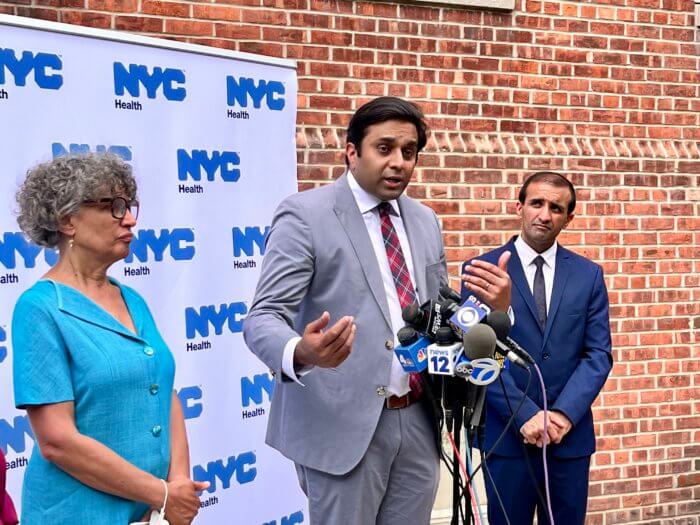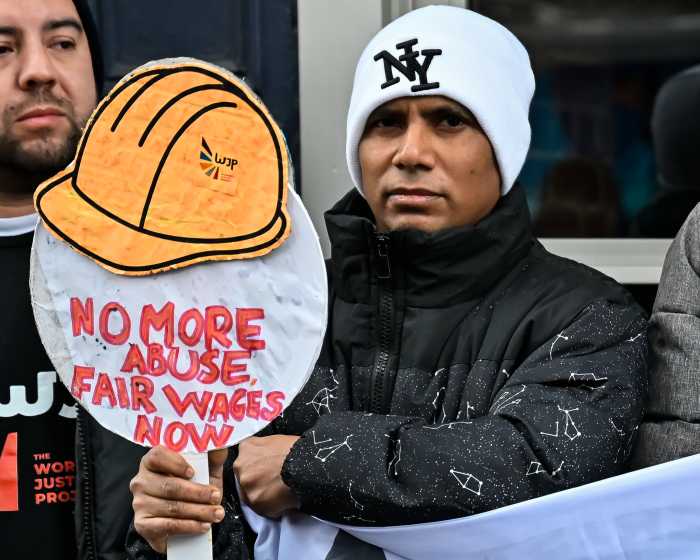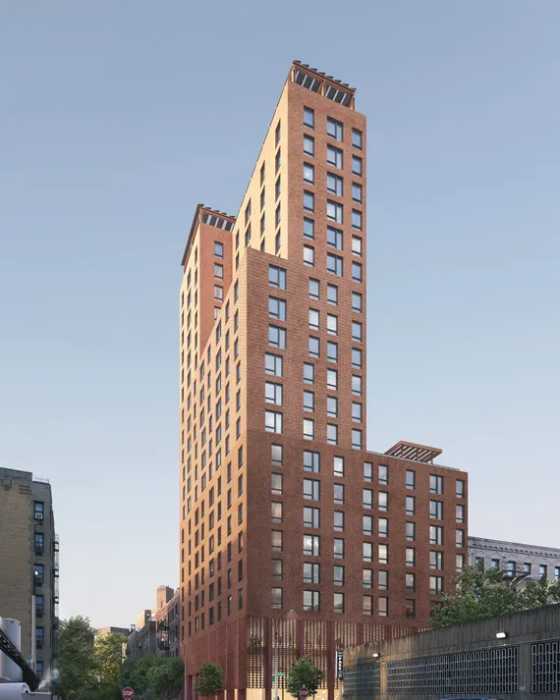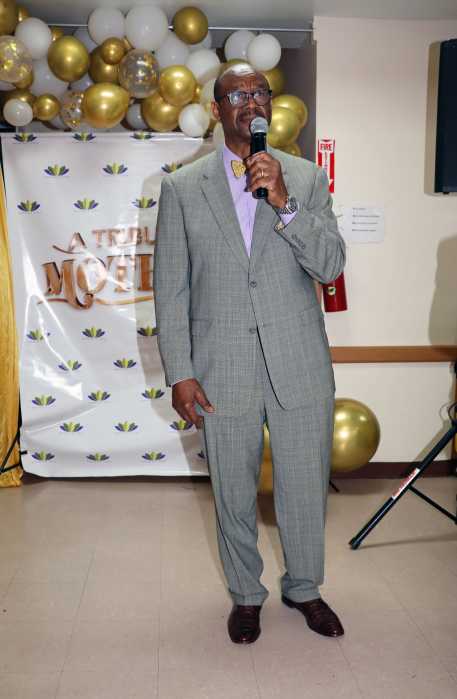More than three years into the ongoing COVID-19 pandemic, two of New York City’s eight sexual health clinics have not resumed testing and treatment and a third is operating reduced hours. When contacted for comment, officials with the city’s Department of Health and Mental Hygiene (DOHMH) would not confirm a timeline to offer services at full capacity at the affected locations.
Nearly nine months after DOHMH announced that five of its dedicated clinics would begin offering sexual health services at full capacity again, those resources remain unavailable at the Crown Heights and Riverside locations, which were redirected to COVID care in March 2020. The Central Harlem location is open four days a week — Monday, Tuesday, Wednesday, and Friday — from the hours of 8:30 a.m. to 3:30 p.m., but with an hour-long closure during the noon lunch rush.
Experts say the continued shortage of treatment and care makes it more difficult for New York City to meet the needs of a diverse population that may not be able to access the facilities that remain in full operation: Chelsea, Corona, Fort Greene, Jamaica, and Morrisania.
“What we’ve heard is that the DOHMH is really focused on the Chelsea clinic,” said Joe Osmundson, a scientist and sexual health care advocate. “The DOHMH is really resourcing this one clinic at the expense of others. If there are staffing issues in the Chelsea clinic, staff will be redirected from other clinics. Some people like going there for their health care, but some people in the Bronx and Harlem will be better served by clinics in their neighborhood.”

The sexual health clinic in Chelsea, a historic gay neighborhood that has suffered from decades of rising rents and gentrification, played a key role in New York City’s response to the 2022 mpox outbreak, but the move was met with similar criticism. A month after the first mpox case was confirmed in Massachusetts, the DOHMH handed out 1,000 doses of the vaccine at the Chelsea clinic, which was announced only 30 minutes beforehand, according to the New York Times. The office reportedly cut off the long line stretching outside its doors after just an hour and a half.
At the time, critics alleged the rollout most directly benefited individuals in proximity to one of the city’s least affordable areas, and some said it feels as if history is repeating.
“When you have a geographical emphasis that places the best sexual health care in the city in a particular neighborhood that happens to be white and wealthy, we need to keep asking: Who are we leaving behind?” Osmundson asked.
Sources said a reduction in New York City’s sexual health services is especially concerning in light of a recorded uptick in sexually transmitted infections (STIs) since the height of COVID. Between 2020 and 2021, DOHMH’s own data estimated that cases of chlamydia shot up 13.2 percent among men and 5.2 percent for women, while cases of gonorrhea rose 12.9 percent and 4.2 percent for each respective group. (Data was not provided for non-binary and gender-diverse people.)
People of color and low-income individuals have been the most significantly impacted by these increases. Rates of syphilis are 2.9 times higher among Black New Yorkers than their white counterparts, and residents of neighborhoods experiencing high poverty rates were 2.5 times as likely to have contracted gonorrhea or chlamydia, according to the DOHMH report.
Advocates are concerned that individuals who lack easy access to one of New York City’s sexual health clinics may dissuade individuals from seeking treatment, resulting in long-term infections or other health complications.
“These are centers of care that disproportionately benefit communities that are frequently shut out of comprehensive sexual health care,” said Jeremiah Johnson, executive director of Prep4All. “Any further delays in being able to get services back up to pre-COVID levels is going to mean that we continue to see disparities and outcomes around HIV and other STIs in the community between white individuals, cisgender individuals, communities of color, and transgender and gender-diverse individuals. It really is essential that these services get back up and running as soon as possible.”
Officials with the DOHMH did not offer specifics on when all eight of its dedicated clinics would recommence offering sexual health services but confirmed that New York City “will be expanding services as capacity permits” at the Central Harlem clinic.

“We have also expanded services at our clinics, including offering mpox vaccination, evaluation and treatment; medical abortion services at our Jamaica, Morrisania, and Central Harlem clinics; and a PrEP continuity of care pilot at our Corona clinic,” a representative said in an emailed statement. “In addition, we continue to offer telehealth services through the NYC Sexual Health Clinic Hotline, which was started during the pandemic. This administration understands the importance of providing sexual health services, and we are working to get these clinics back to full force in order to meet the needs of New Yorkers.”
Sources knowledgeable with DOHMH said the reduction in sexual health services is, in part, attributable to system-wide staff shortages amid the pandemic’s fallout. And for those who need care, services remain available at several other health centers throughout New York City: Callen-Lorde now has locations in the Bronx, Brooklyn, and Manhattan, while GMHC provides free testing for HIV and other STIs and works directly with DOHMH to help get clients any necessary treatment they may require.
But Johnson stressed that we can’t assume there are “parallel options” for the “very unique patient population” that often seeks out STI services at New York City’s sexual health clinics. Some of these individuals, he said, have experienced stigma and discrimination from other health care providers and may be reticent to explore alternative avenues for treatment.
“These are really important safety net clinics for people to go to,” he said. “Hopefully people are able to identify [other health care providers] and go there, but it’s not a fix for a system that is burned out. This is a no brainer: These systems help the communities that get left out and contribute to driving down new infections, which ultimately helps to tamp down health care costs writ large. The infrastructure is already there. They just need to get it staffed, and they need to come up with a plan to do it immediately.”













